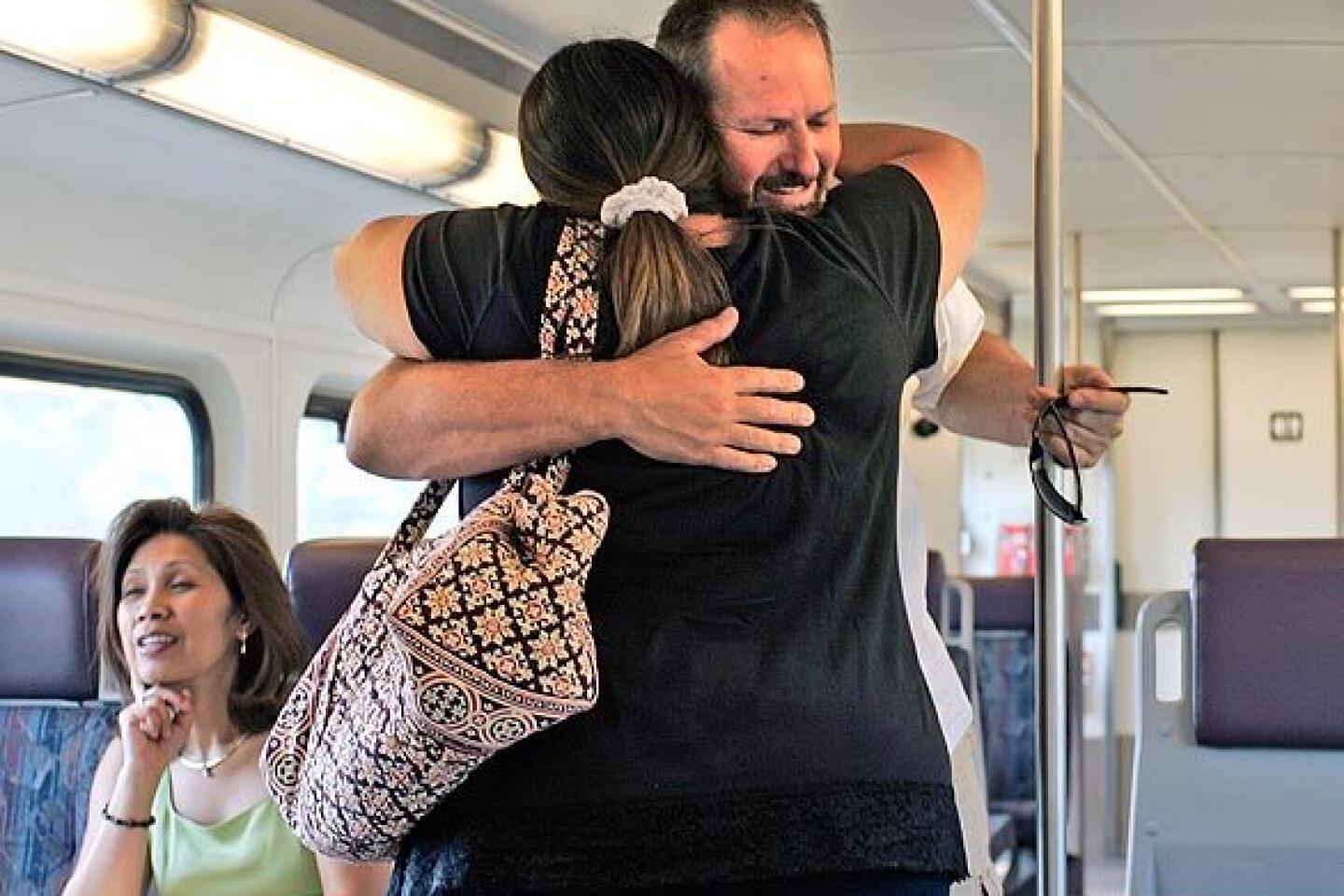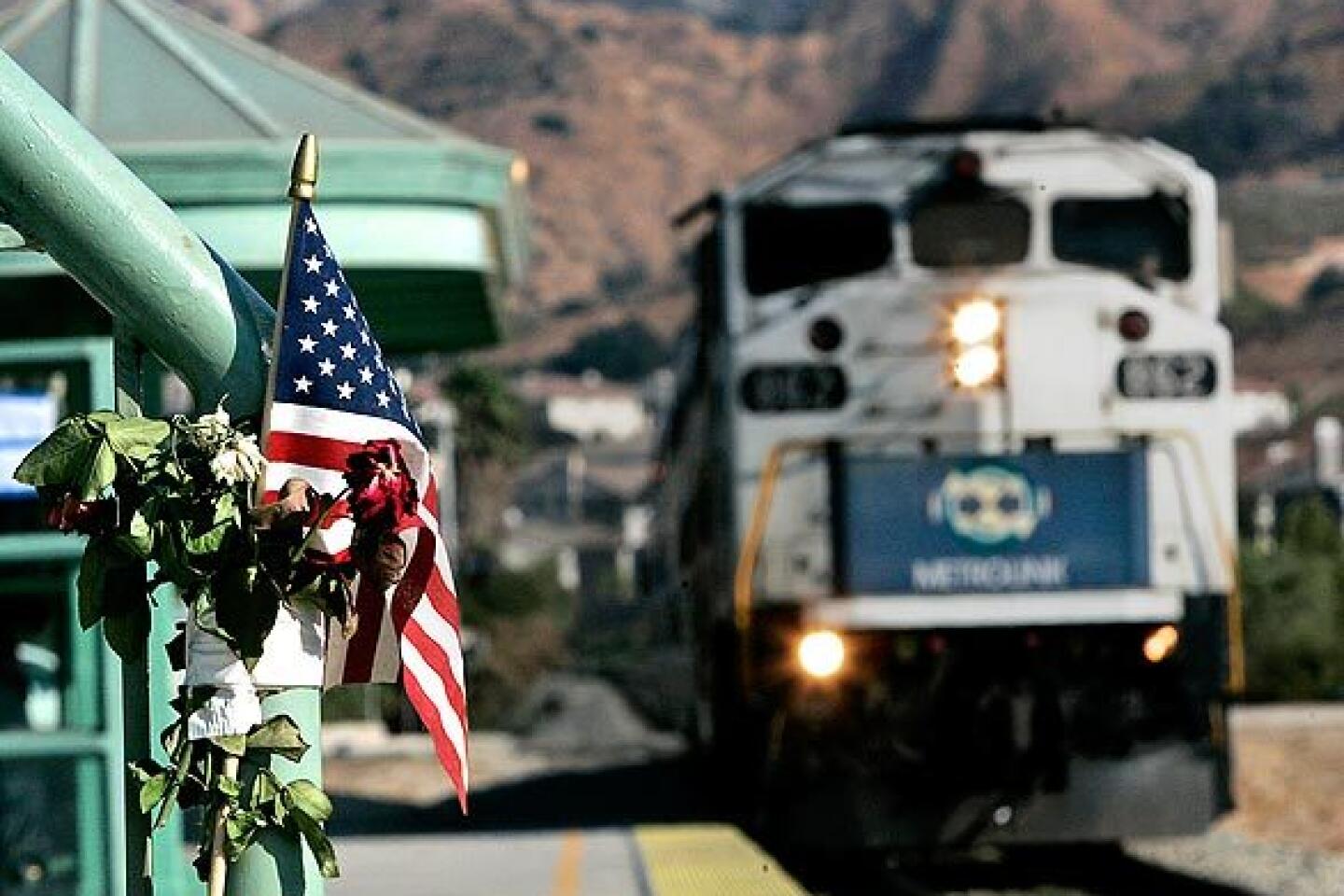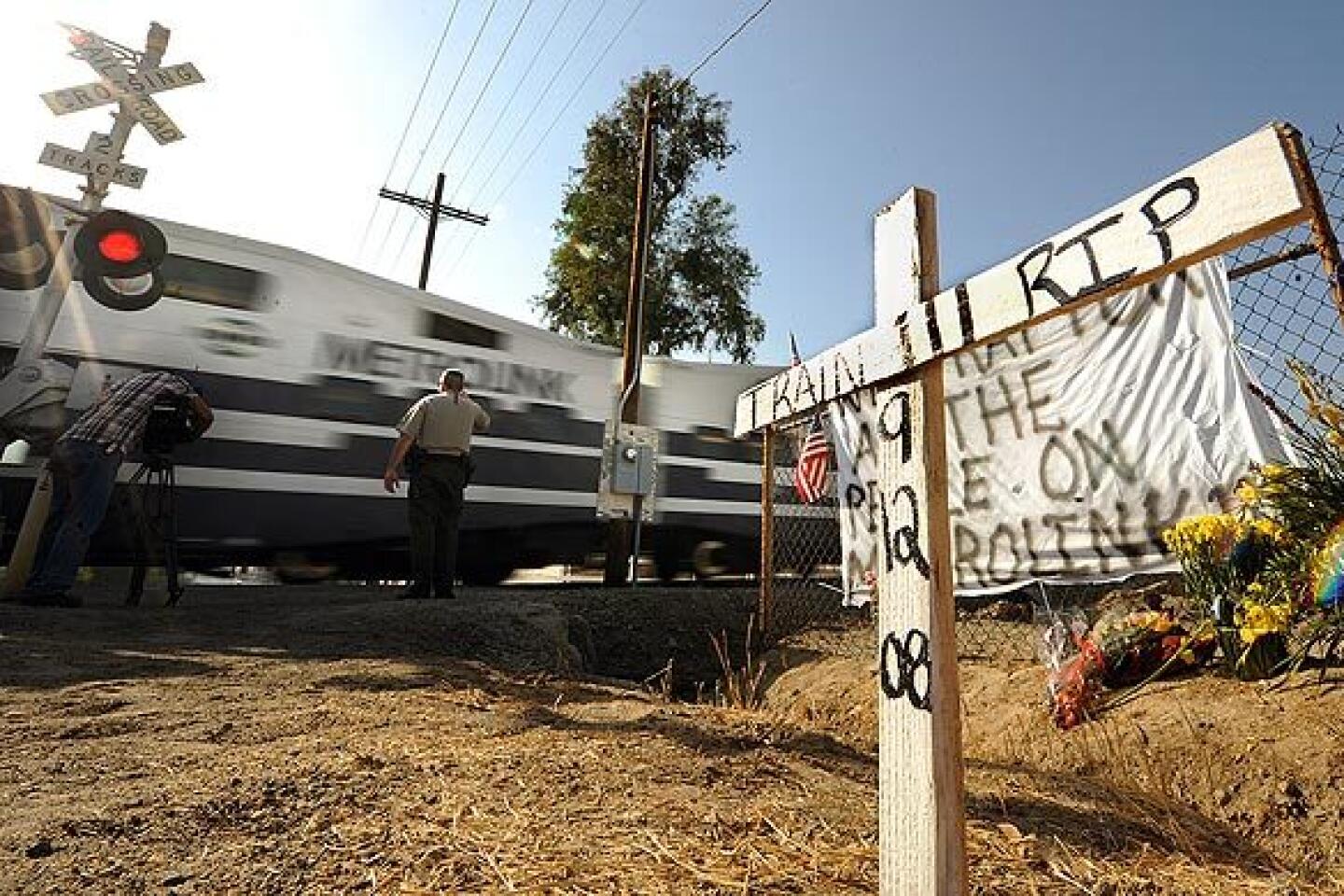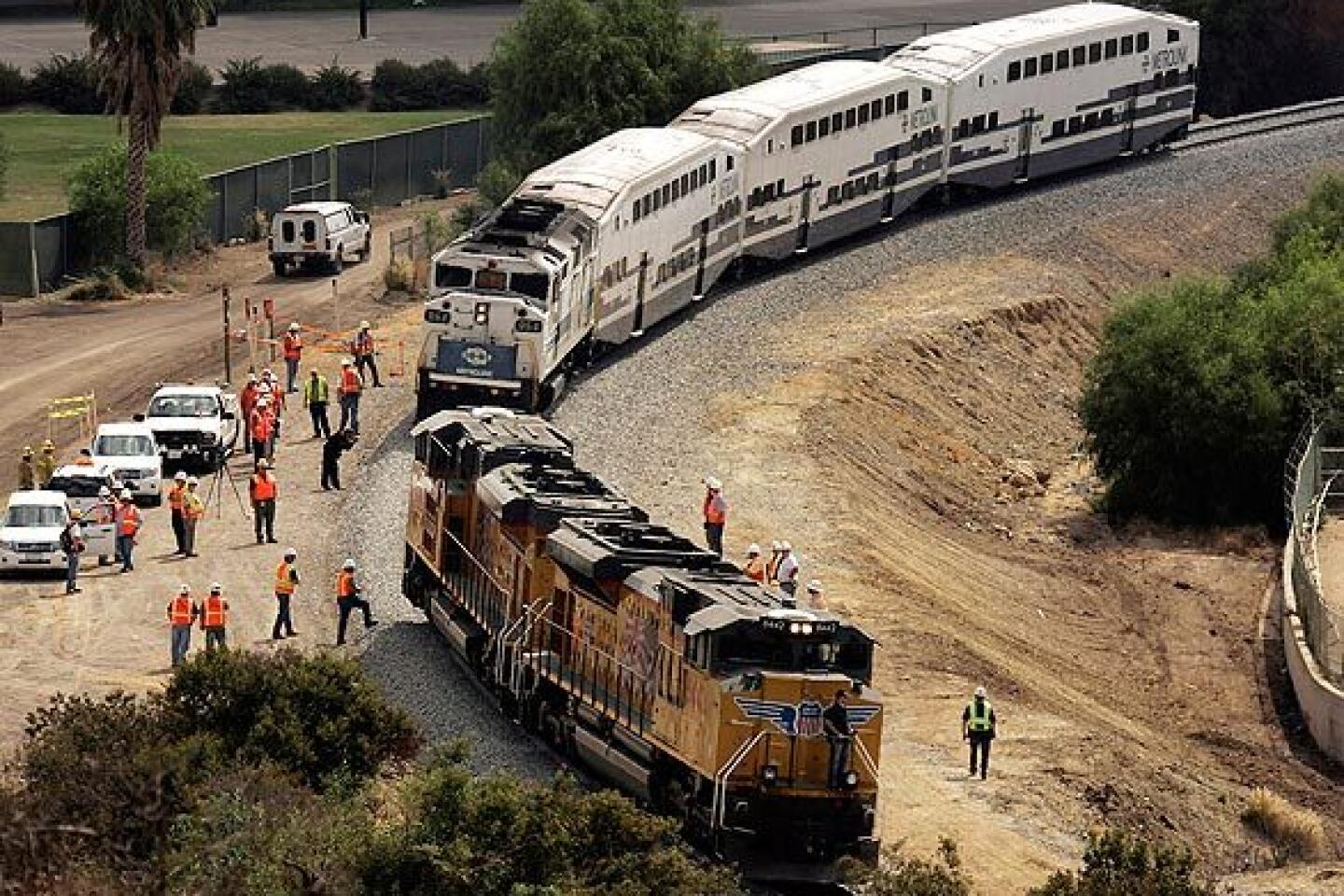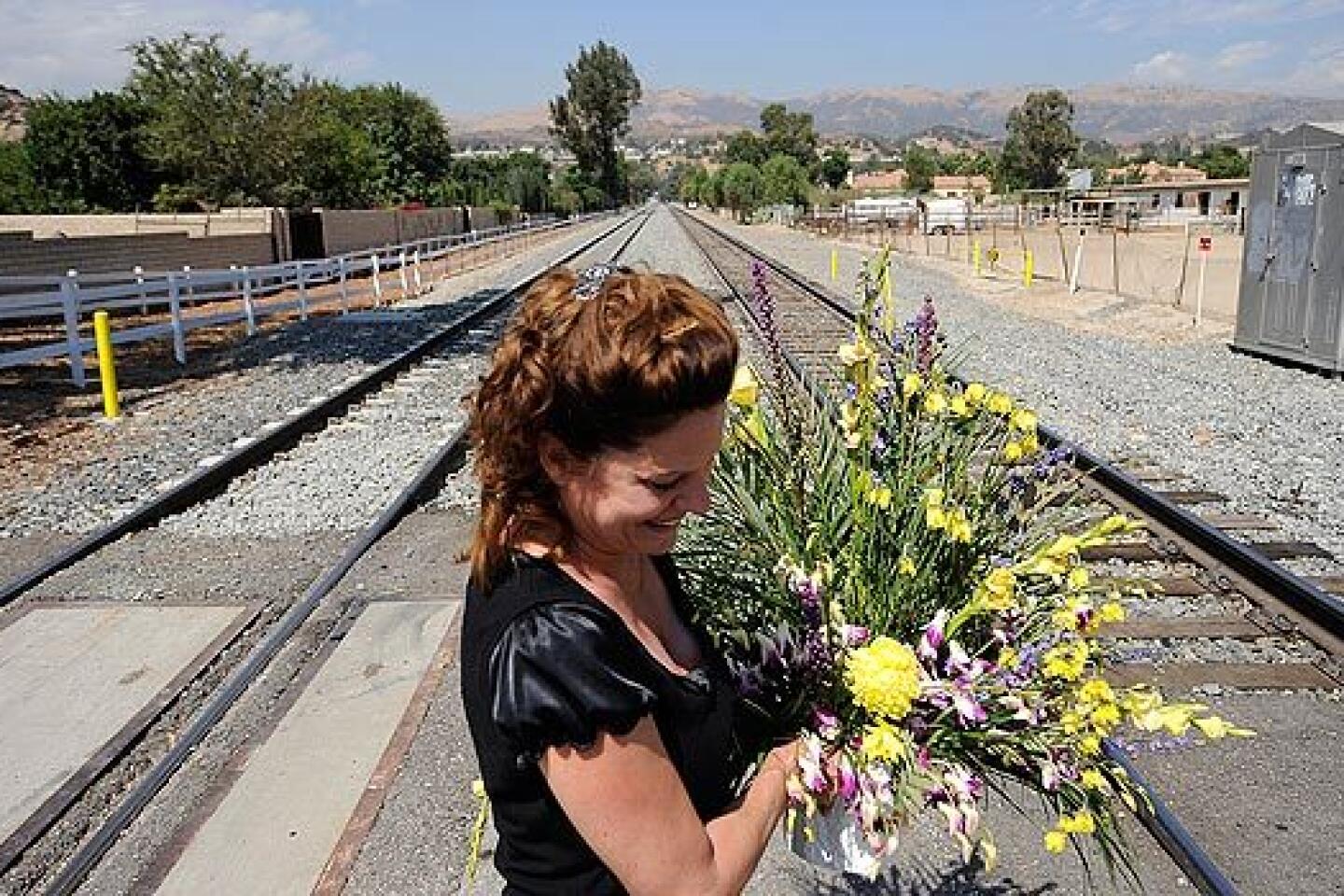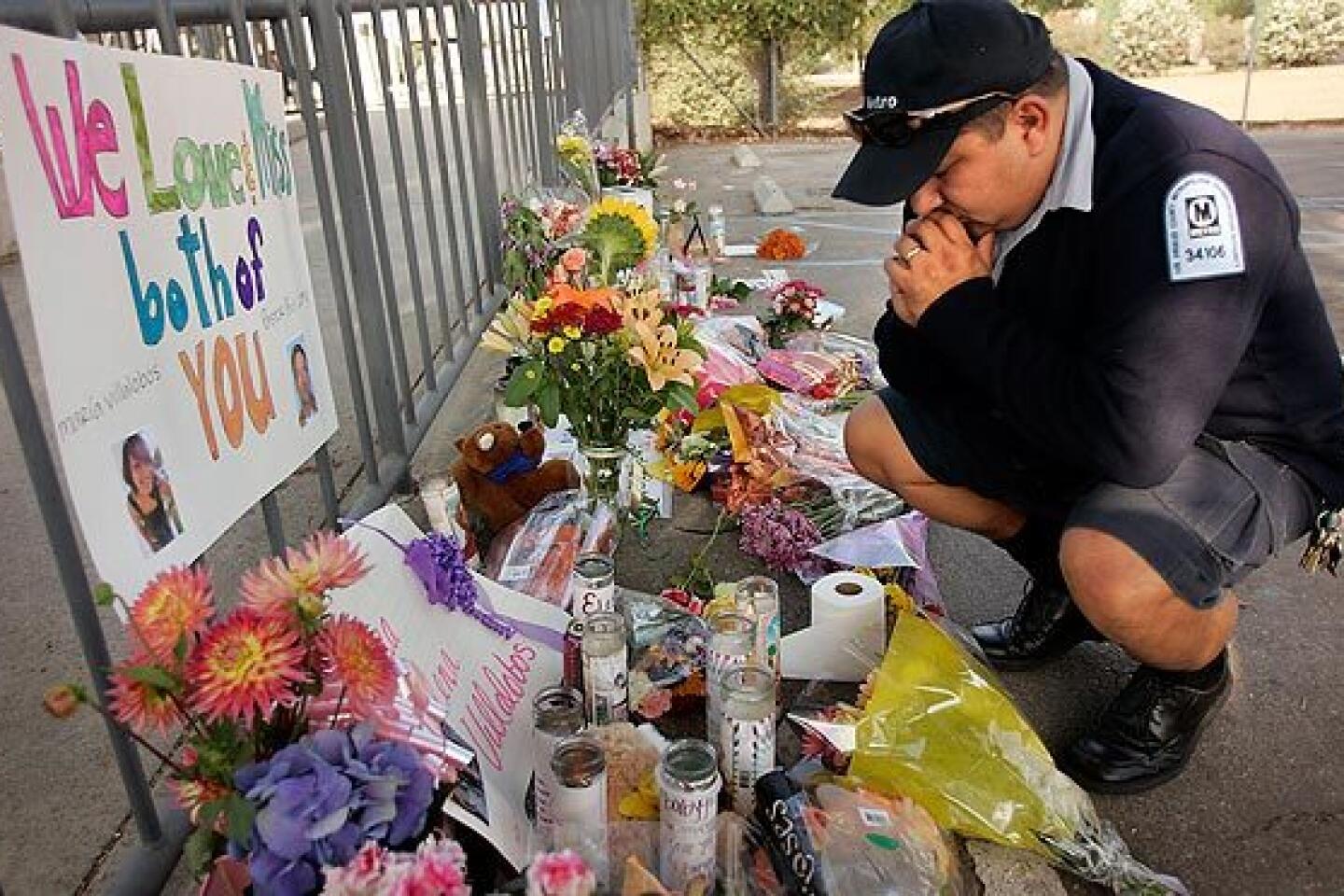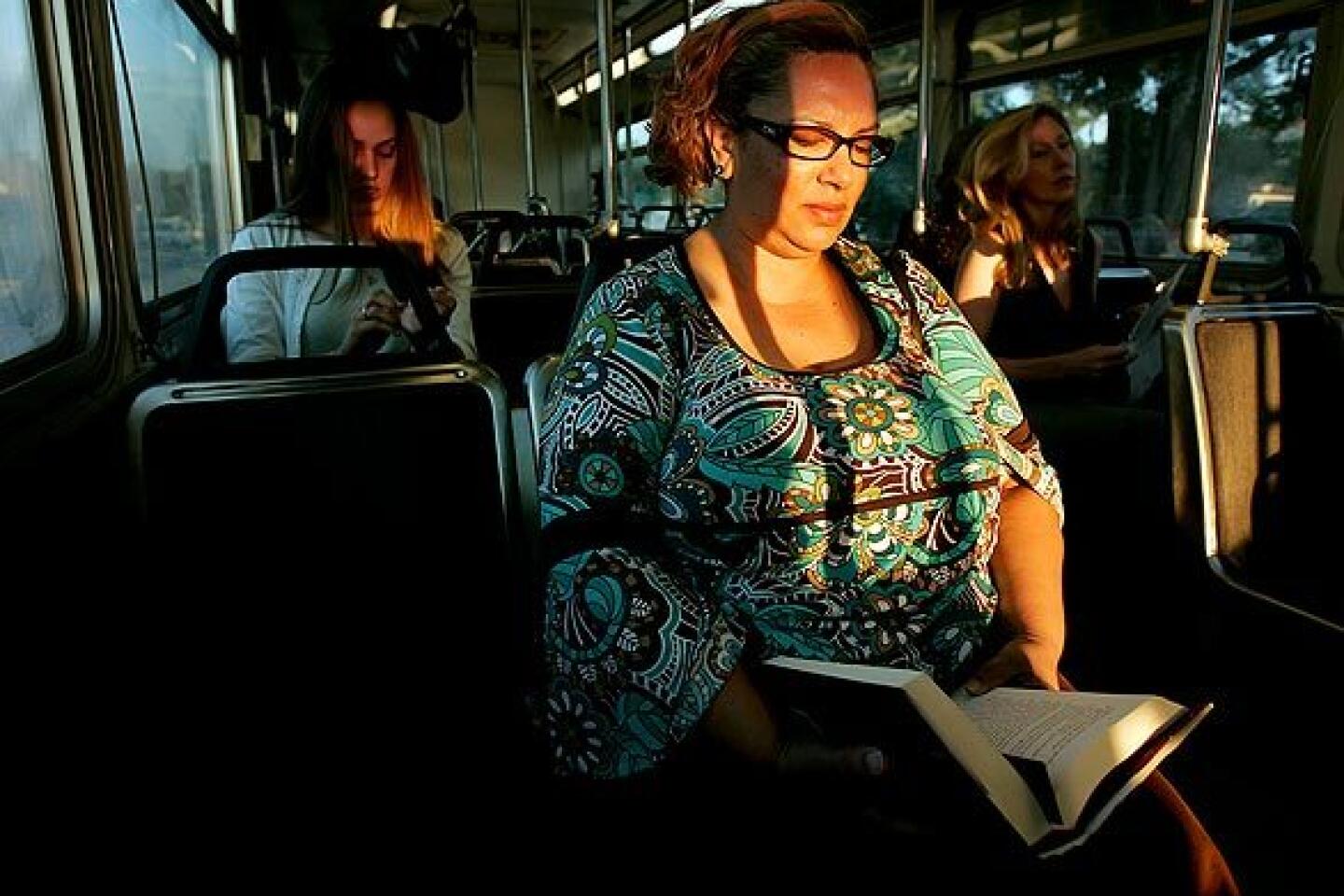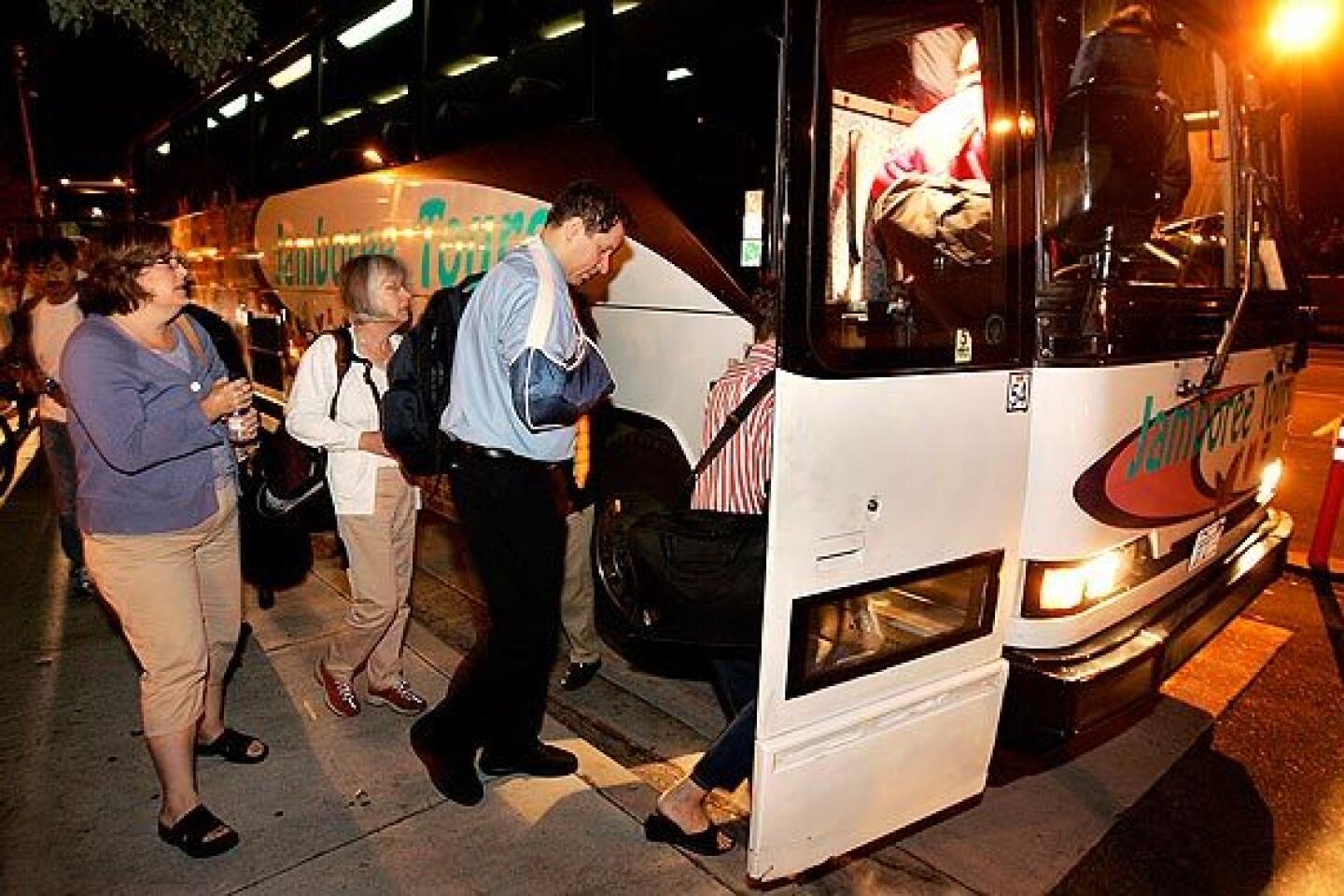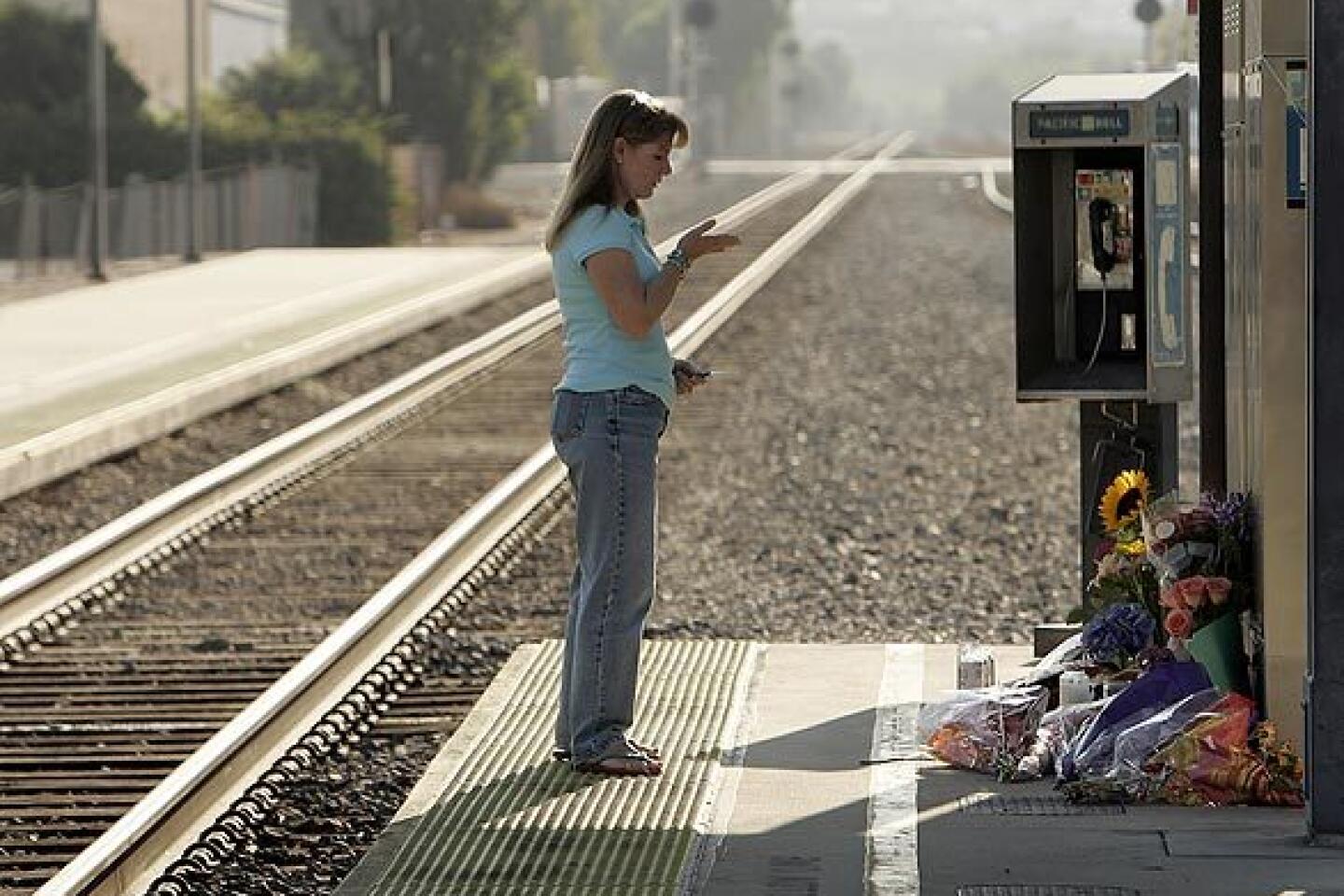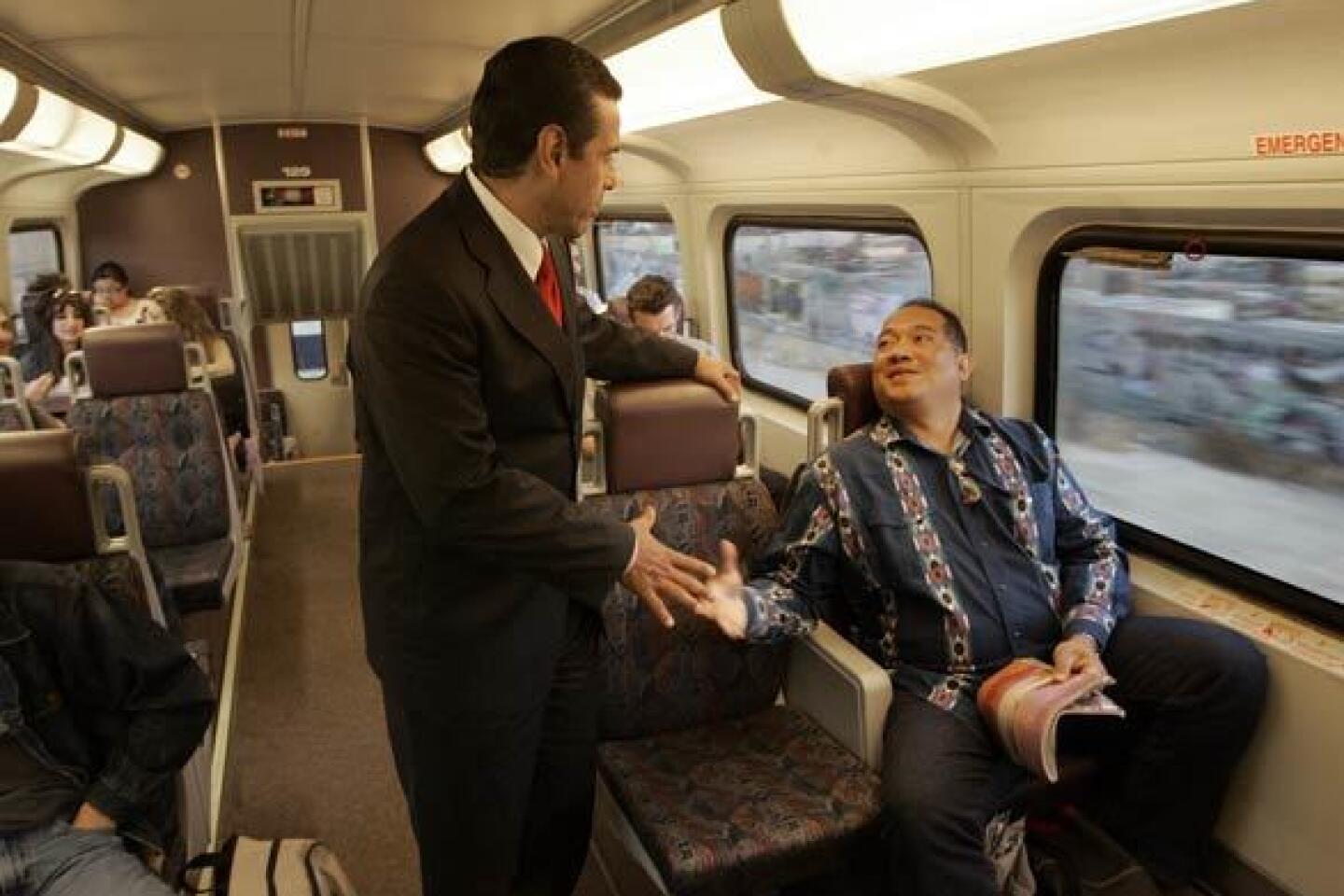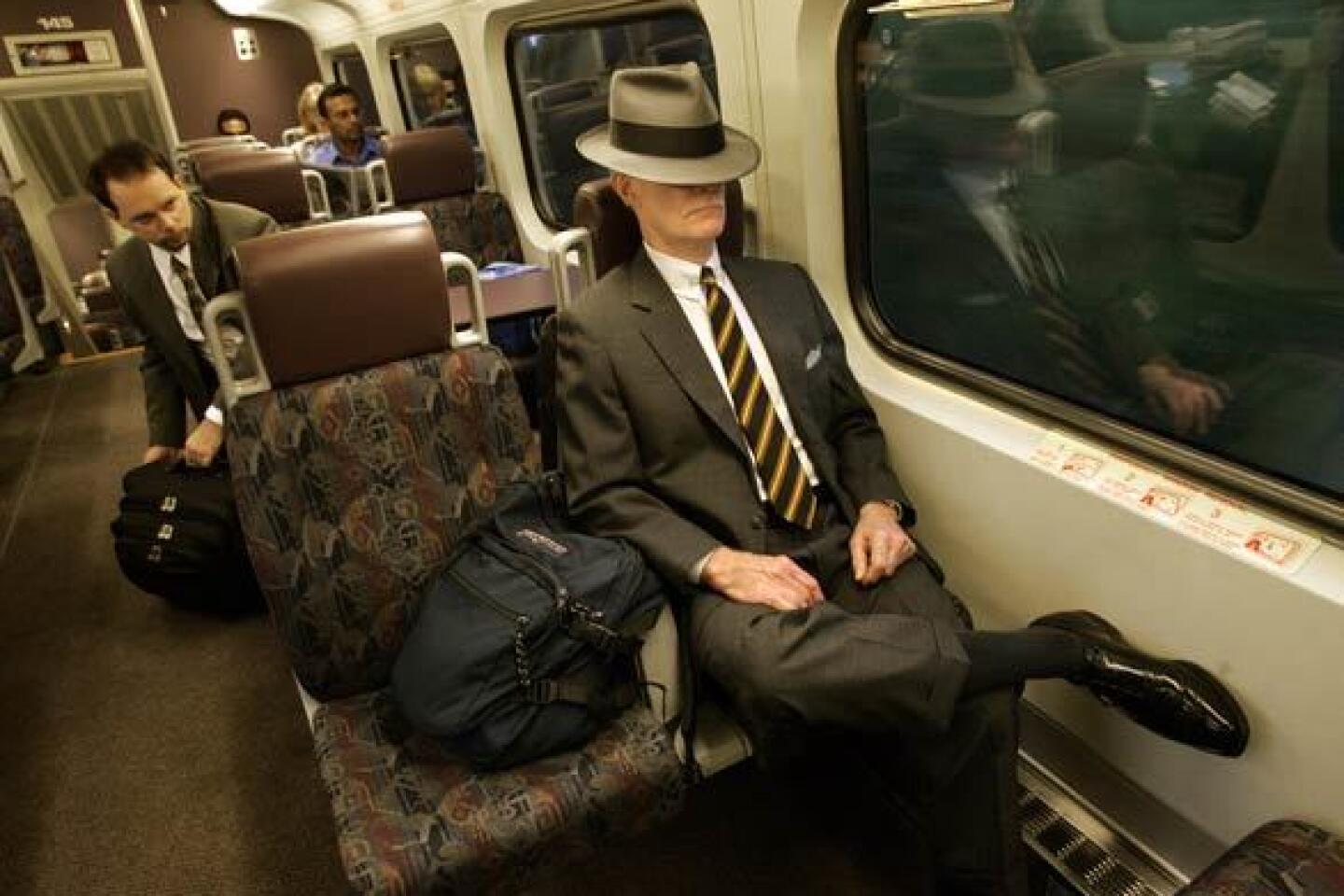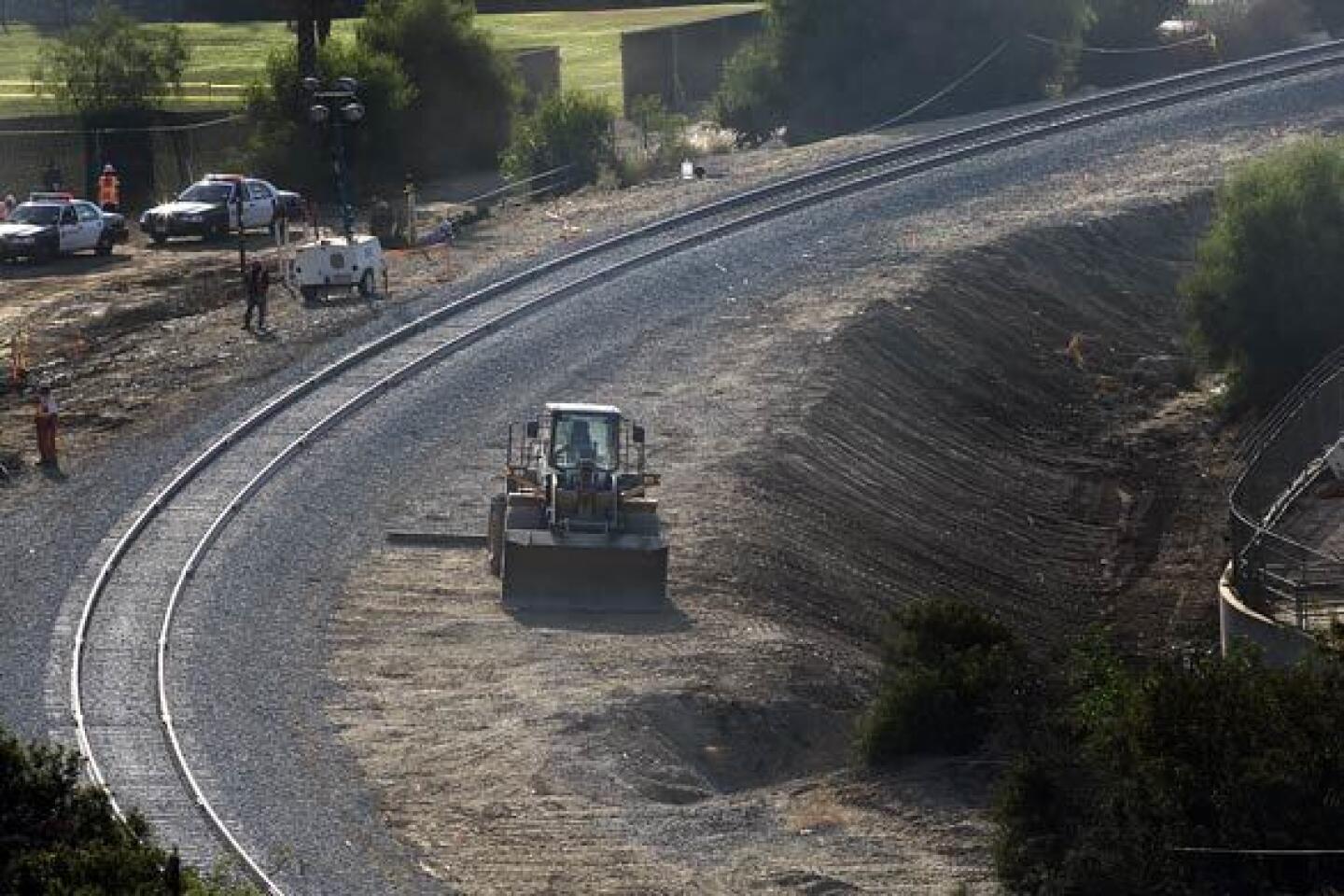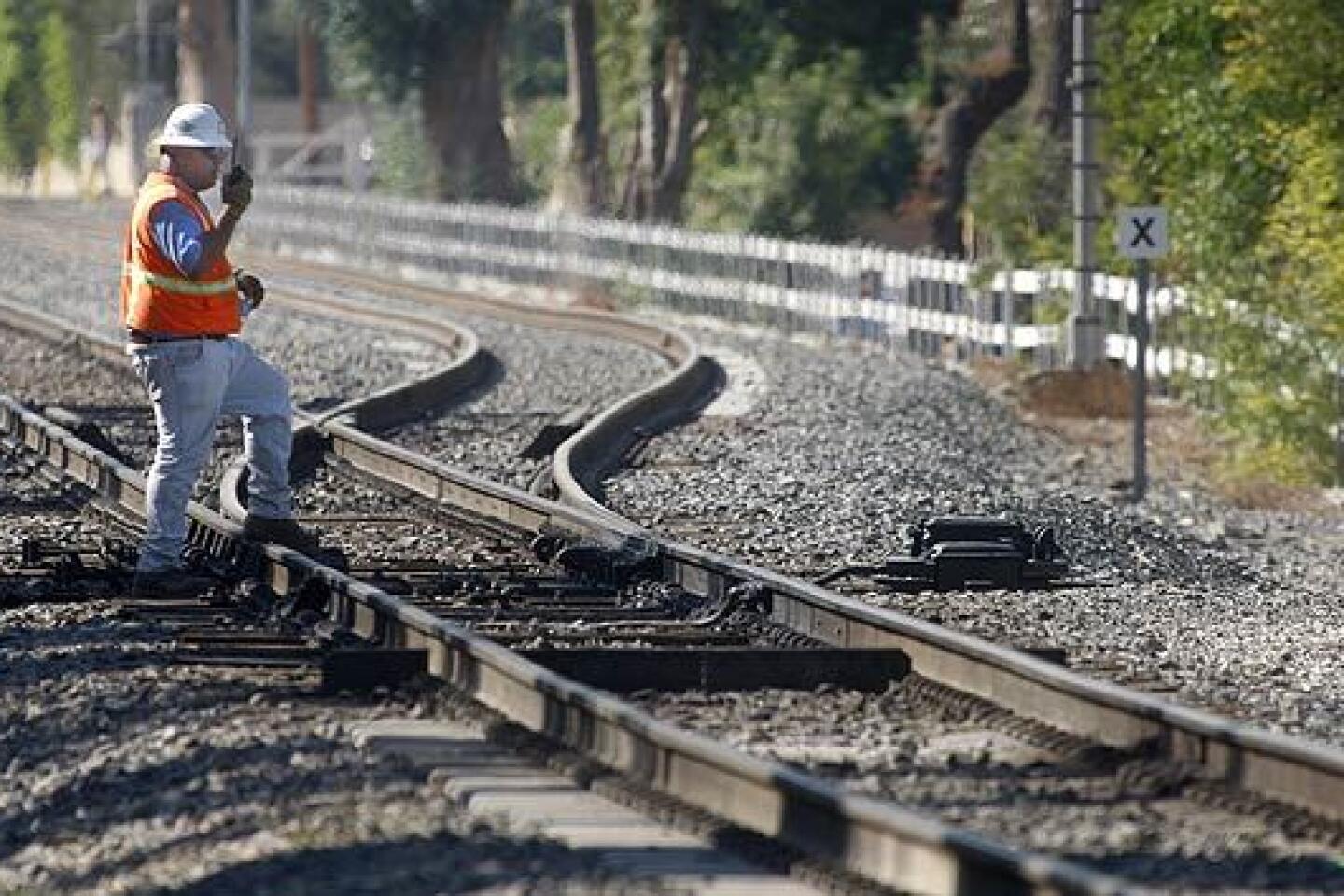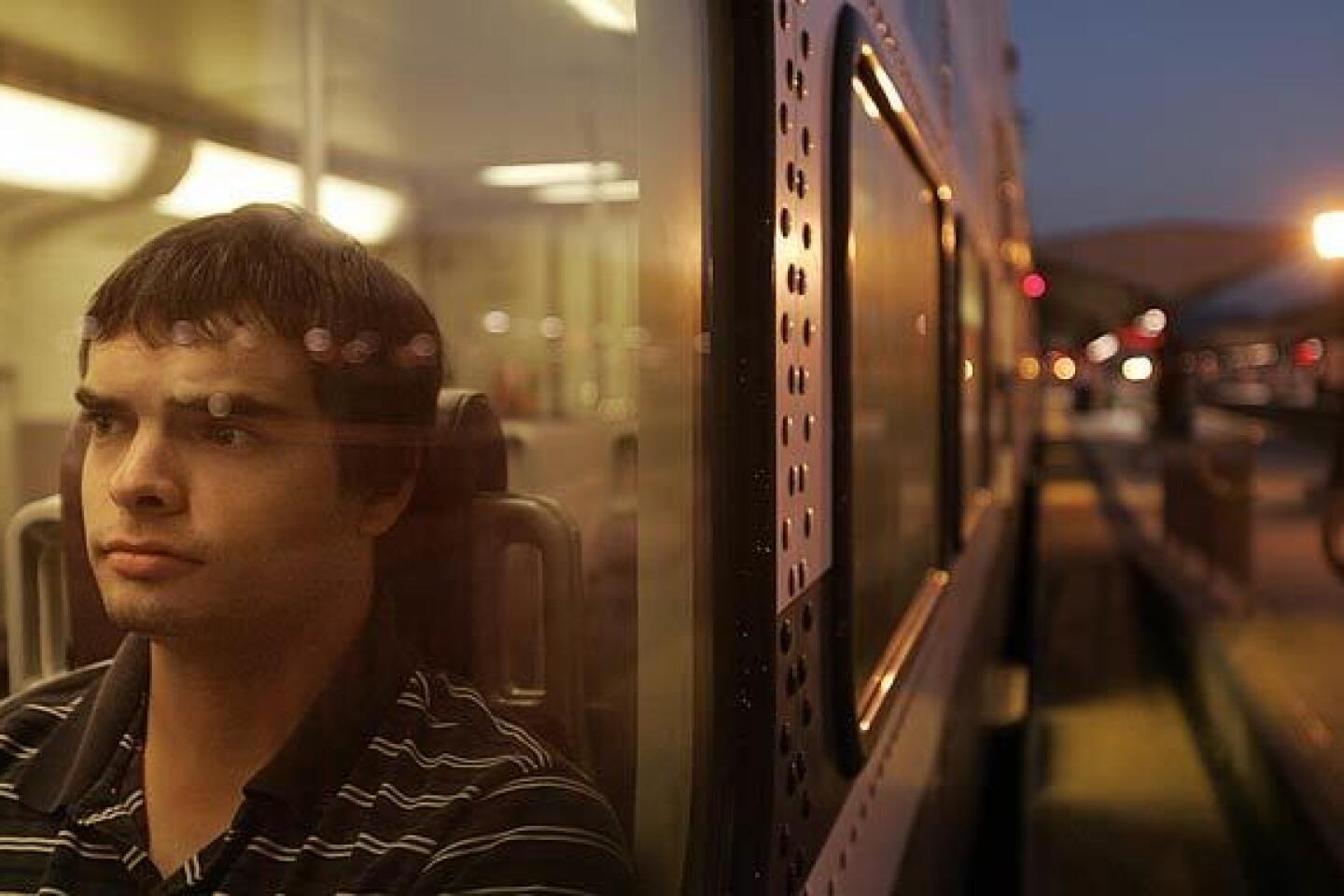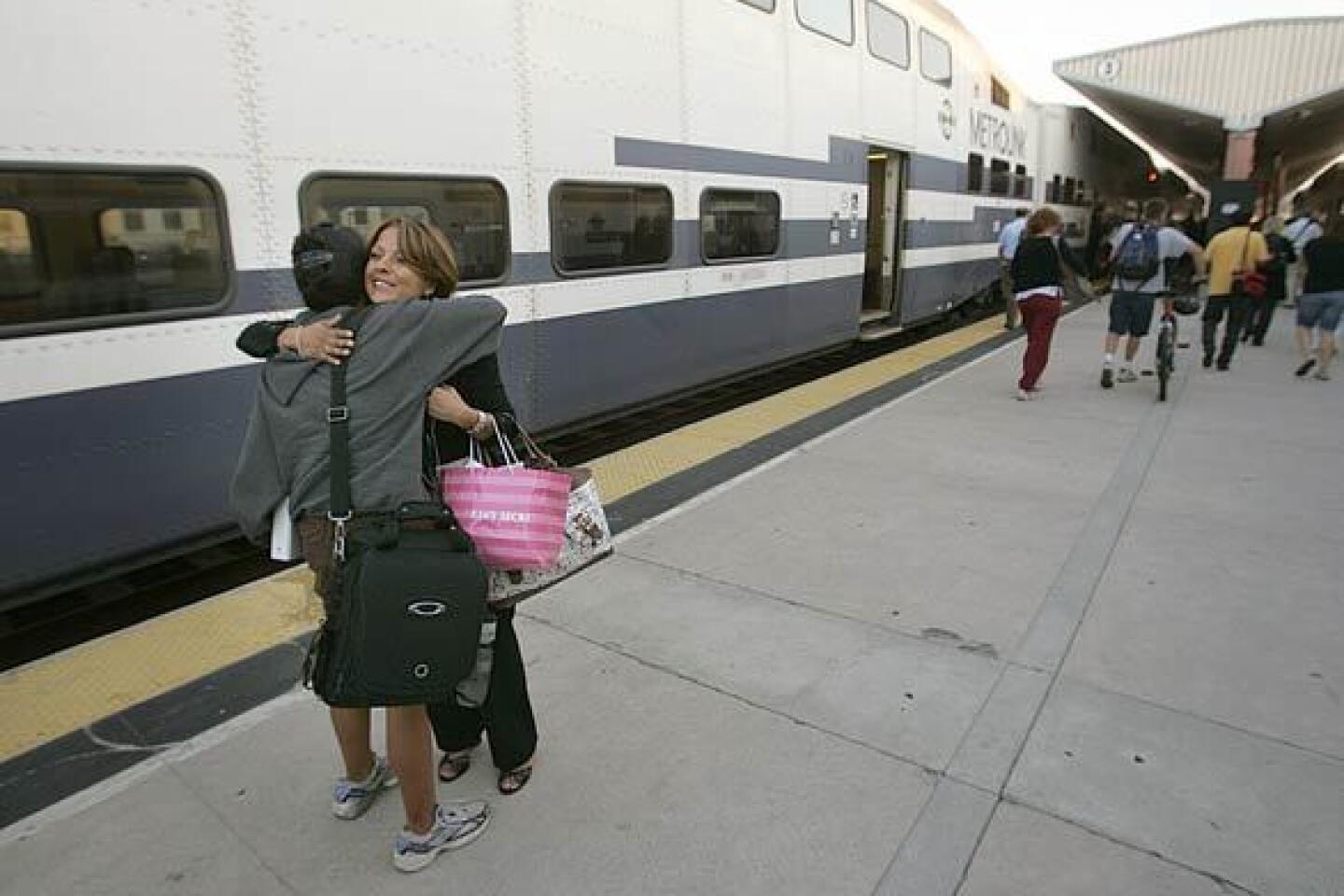Metrolink spokeswoman formed a human link
- Share via
Somehow, her tears made me feel better.
Sitting at my desk - glued to televised accounts of the Metrolink crash, amidst the hubbub of a newsroom scrambling to cover the disaster - watching Denise Tyrrell lose her composure was painful. And illuminating.
The image said as much about the magnitude of the crash as those horrific scenes of the train’s smoking hulk, the brigades of firefighters and the sheet-covered bodies of passengers.
The head-on collision wasn’t just big news, with spectacular photo footage. It was a human tragedy, with ripples that would touch hundreds of families, thousands of lives - survivors; families and friends of those who died.
And it would touch us, as well.
On Friday, a few hours after the accident, I watched Tyrrell stumble through the official account before dozens of reporters and TV cameras - drawing her hand to her mouth in horror, and squeezing her eyes shut to hold back tears. And I found myself crying with her. By the next day, though, I’d willed myself numb.
Tyrrell didn’t have that luxury. The spokeswoman for Metrolink, she was on the scene until 3 a.m. Saturday, monitoring the rescue and investigation.
And that afternoon at a press conference, she answered the question on everyone’s mind, in the only way her conscience would allow: The apparent cause of the crash was human error.
By Monday, Tyrrell was the former spokeswoman for Metrolink.
Did Tyrrell overstep her bounds? You can read our story today and decide.
She could have taken a safer route - stonewalled and deferred to the National Transportation Safety Board, which has its own investigation. She probably would have kept her job. But would she be able to sleep at night?
It’s clear Tyrrell knew she was stepping out on a limb when she blamed the crash on a Metrolink engineer who failed to stop at a red light warning.
“Her hands were shaking,” said Steve Whitmore, spokesman for the Los Angeles County Sheriff’s Department. “She asked me to stand with her when she made the statement.”
I wasn’t surprised to see Whitmore next to her. His boss, Sheriff Lee Baca, went against the grain three years ago by quickly shouldering the blame when deputies shot up a residential neighborhood in Compton. “I don’t need an investigation to tell me too many shots were fired,” he said then.
But I was surprised to see Los Angeles Mayor Antonio Villaraigosa out of camera range, off to the side during Tyrrell’s press conference. The mayor is anything but camera shy; it’s easy to recognize politics.
It’s not clear yet whether Tyrrell will be the hero or the goat when the dust clears. Was her candor a rush to judgment, or a way to jumpstart the healing process? Were her tears a sign she was out of control, or a reflection of raw feelings all around?
“She was emotional,” Whitmore said, “as were many firefighters, as were many police officers. ..... I have the strongest empathy and support for that young lady. Her courage is remarkable.”
I’m not prepared to call Tyrrell a hero. She struck a blow for decency. But the heroes are the rescue workers, the local residents who rallied to help, the hospital teams who treated the wounded.
And she doesn’t want us to consider her a victim. “Those people on that train and their families are the victims,” Tyrrell told me in an e-mail Monday night. “I’m going through stress. They are going through tragedy.”
She was our first link to that tragedy. And her tears confirmed for me our shared humanity.
sandy.banks@latimes.com
More to Read
Sign up for Essential California
The most important California stories and recommendations in your inbox every morning.
You may occasionally receive promotional content from the Los Angeles Times.
